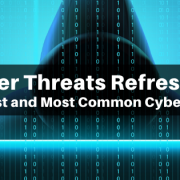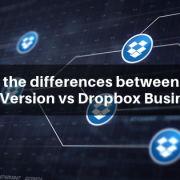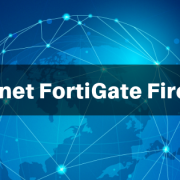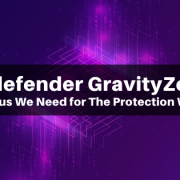What is Ransomware and how to prevent it?

Trick or Treat: Understanding & Preventing Ransomware
One day, you’re using your computer and a pop-up appears when you tried to access some files. The pop-up reads:

Uh oh! It appears that you are being held to ransom. Unless a certain demand has been met, you’ll risk losing all your precious computer data to the hackers. Sounds scary, isn’t it? Just as our world is filled with physical threats, the cyber world is also filled with cyber threats that could potentially harm your computer’s security.
Today, we seek to understand the ransomware. This article covers how it attacks, some examples of notable cases and what can be done to prevent them.
What Is Ransomware?
Let’s look at an analogy. In high school, a bully snatches a victim’s homework away, threatening to tear it apart if he doesn’t hand over his lunch money.
In our earlier article, we briefly discussed about what malware could do to your computer. Ransomware is a malware that locks hard drive or encrypt computer files, preventing users from accessing them unless payment is made to the hackers. Threats are occasionally made to permanently encrypt or erase those files if payment is not made within the stipulated time.
Ransomware can create devastating effects to both humans and organizations. For individual users, they are locked out from accessing their personal files like photos, videos or essential documents. As an organization, loss of data means loss of business which could severely cripple the entire establishment. Simply put it, when these cyber threats strike, you become a victim of a ransom. You want your stuff back? You must pay up first.
How Does Ransomware Attacks?
Ransomware attacks your computer in many ways. One common form is through phishing. Phishing is the fraudulent use of electronic communications to commit theft on sensitive user data such as login credentials or credit card numbers. It often appears in the form of emails from seemingly trustable third parties, such as a bank to trick you into downloading and opening malicious link or files which may contain ransomware.
When that happens, your computer files and systems begin locking themselves up. Without a special decoder which only the hackers possess, it is impossible to decrypt them. So, this puts the hackers in an advantage spot where they could exploit.
Recorded Ransomware Cases
Targets of ransomware cyber-attacks may vary. Some attackers prefer hitting at organizations with smaller security teams. Whilst some aimed at organizations that pay quick ransom. Over the years, there has been several breaches in cyber security involving ransomware, both locally and internationally.
In late 2018, a Malaysia media company was hit by a ransomware. The cyber attackers demanded the ransom in the form of 1,000 bitcoins which is equivalent to approximately RM 26.42 mil back in November 2018 before agreeing to revert the computer system access. However, the company decided not to pay the ransom.
Earlier this year, a Norwegian company was attacked. Reports claimed that the incident has inflicted an estimated total of $40 million loss to the company within a week.

How to Prevent Ransomware Attacks?
With a better understanding of a ransomware attack, prevention efforts can be made to ensure you don’t become the next victim.
Here are some good practices that you can use as a guide to prevent the attacks:
- Always back up your files, be it locally external hard drive or off-site cloud backup, your computer data would be stored somewhere safe. In the event of any attack, you could easily wipe off your infected system and recover your data through the backups.
- Keep your systems and software up-to-date as outdated software are more susceptible to malware attacks.
- Avoid downloading or opening any suspicious link or file or provide administrative privileges to a software if you don’t know what it does.
- Protect your computer with security software such as a firewall or an antivirus. (Read about the differences between firewall and antivirus software here)
That being said, Mewamax Solutions Sdn Bhd is an authorized dealer for firewall and antivirus software and we offer some of the best security software in Malaysia. We would recommend you Fortinet and Webroot as the ideal choices for computer network securities.
For more details on these security software products, contact us at 03-6272 8031. Protect your computers and don’t become a victim of cyber threats.










